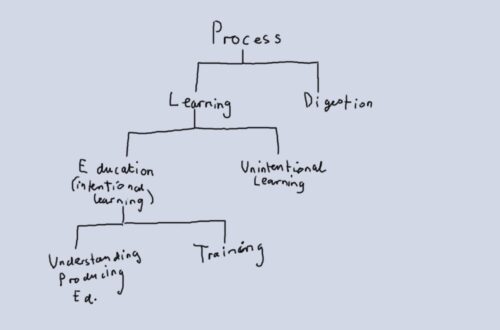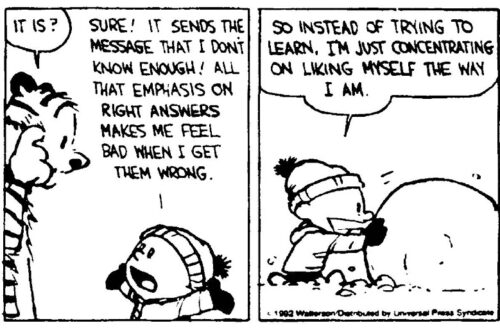There are three conditions necessary for human learning. First, it must be possible, in principle, for human beings to obtain knowledge. They must be able to come to true beliefs. Second, it must be possible for human beings to make sense of experience; the world must be intelligible. Third, it must be possible for human beings to communicate with one another. A teacher has to be able to impart knowledge to the student. The question is: what reality would provide all three conditions? Answer: the God of the Bible.
First, God is omniscient. Since God knows all things, past, present and future, God cannot be mistaken about anything. God defines truth. Since God is also the creator of human beings he is able to design human beings with the capacity to know truth.
If God did not know all things then there would be a possibility that something he did not know would turn out to falsify something he did know and thereby disqualify that piece of knowledge. God would believe a lie. Since God would not know how much he did not know there would be no way to guarantee that anything he took to already know would not turn out to be false. And if God’s knowledge is not guaranteed then there would be no way to be sure that he could design a human being capable of coming to true beliefs.
Second, God is sovereign. He is in control of all things. This is the grounds for his beliefs being true. Since God controls all things and everything that happens happens according to his plan, there is predictable order to the universe and, because God designs human beings with the capacity to know, human beings can make sense of experience.
If God did not control all things there would be no way to guarantee the intelligibility of the universe. This is most obvious when it comes to inductive reasoning that modern science so depends on. The “inductive problem,” that inductive reasoning cannot be justified, is taken care of if God is in control of all things. God’s sovereignty is what the scientific endeavour needs in order to operate.
Third, God is triune, eternally existent, one God in three persons. Although this doctrine is difficult for many, it provides the conditions necessary for human communication. It means that language was not invented post creation. Language necessitates more than one person (see Wittgenstein’s argument against private language here). Since God exists in three persons language existed before creation in the Godhead. God preinterpreted every event that would ever occur. Human communication relies on God’s interpretation since without it there would be no way to know the meaning of any event objectively. Since there is an objective interpretation of all that happens, it is possible for human beings to interpret reality rightly.
If the first time there was more than one person was after the creation of Adam, then language would have been created after the creation of Adam. If language was formed in the garden then the naming of things and the grammar of language would have been created as events happened. If language was created, by human beings, as they began to interpret events, then interpretation would have been a purely human activity and no one could have a better interpretation than anyone else. God’s plan, prior to creation, would have been uninterpreted and even unknowable (how would God have known anything without language?).
Learning, along with everything else in life, is theological, necessarily related to God. This is because all things are related to God.
It might be suggested that learning does not depend on belief in God, therefore, God is not necessary for human learning. However, that is to shift from what a person believes to what actually is. What I have attempted to show is that God is necessary for learning. You don’t have to believe in God for that to be so. For example, it is possible to come to good scientific conclusions using inductive reasoning if you are an unbeliever and equally possible to come to bad scientific conclusions using inductive reasoning if you are a believer. Belief is not what makes science work. God is who makes science work.
Have a good day at school today. Soli Deo Gloria!



